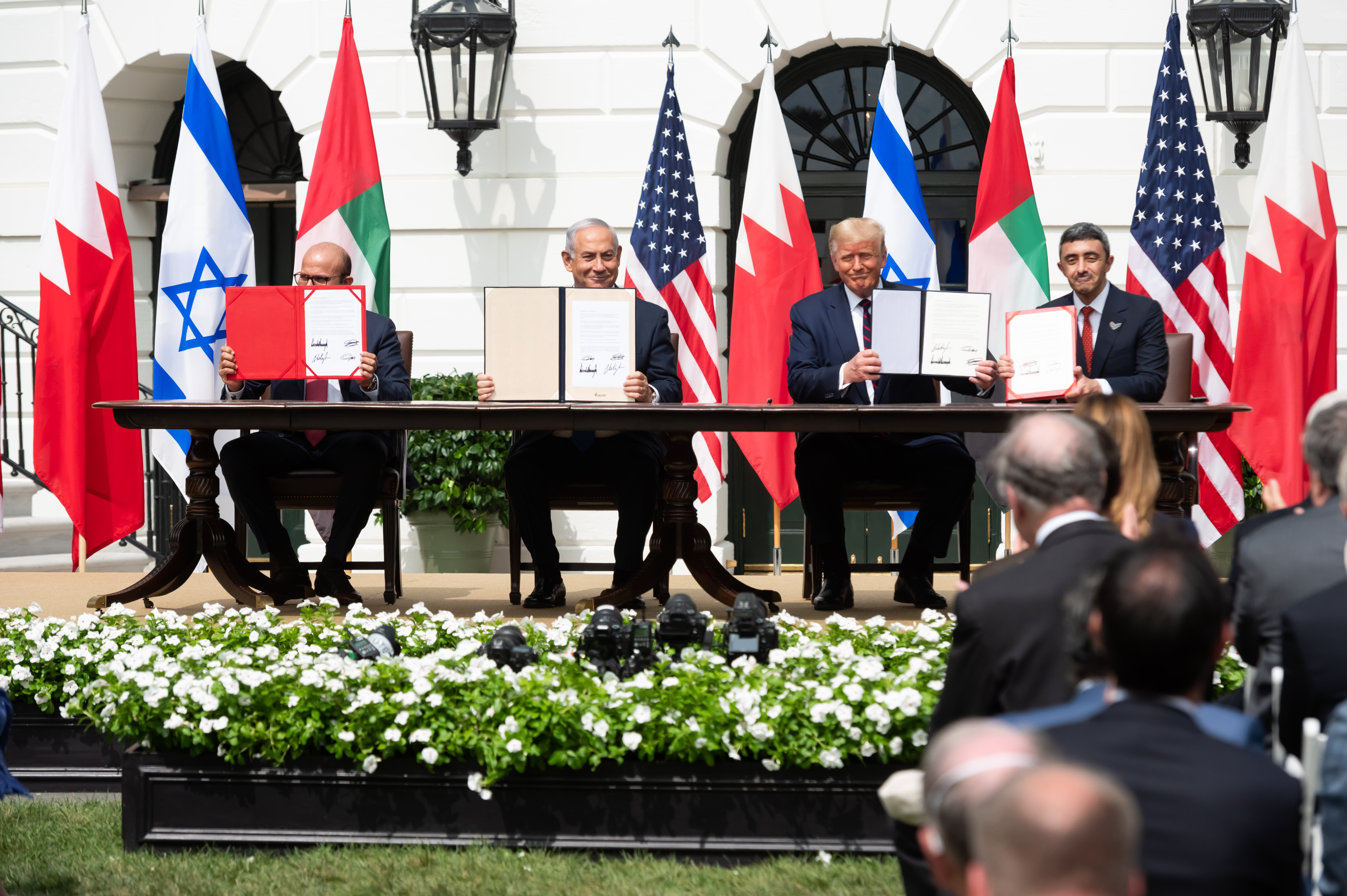MENAPOL Blog
Aftermath of Gulf Countries Normalizing Relations with Israel

FNF MENA: The so-called "Abraham Accords" are repeatedly said to bring "peace and stability" in the region, although the deal may enable the UAE to purchase more advanced US weaponry previously off limits to it, including drones. To what extent are the UAE and Bahrain benefiting domestically and security-wise from this deal - in comparison to how the relations were before?
Ties between these two Gulf states and Israel predate the Abraham Accords. The UAE has previously relied on Israeli technology in areas of cyber-security, and the UAE and Israel have also cooperated in intelligence-sharing. The Accords bring into the open – and accelerate – existing ties between them and facilitate the expansion of these ties in the economy, trade, tourism, healthcare, and certainly security. It remains to be seen what specific kinds of security cooperation will emerge as a result of the Accords.
FNF MENA: How would you evaluate public sentiment both in the UAE and in Bahrain? Does civil society openly oppose its government’s diplomatic path?
Some opposition has been expressed towards these Agreements. In Bahrain, fourteen civil society organizations signed a statement rejecting the agreement to normalize. Small-scale street protests also broke out every evening following the signing of the Accords, for an almost two-week period. Hashtags expressing opposition to the agreement also jumped to number one on twitter, the night the announcement was made.
The UAE has a much more restricted space for civil society and it is difficult to gage public sentiment. Some Emiratis have expressed their support for the agreement, but it is difficult to gage the extent of those who do oppose it.
FNF MENA: Abu Dhabi's Crown Prince Sheikh Mohammed bin Zayed Al Nahyan is seen as the driving force behind the agreement with Israel. To what extent have the UAE been acting on their own accord and to which extent are they influenced by Saudi Arabia? How would you assess Saudi Arabia's current and future role in the context of the GCC countries?
Saudi Arabia spearheaded the Arab Peace Initiative – which promised Israel recognition from all twenty-two members of the Arab League in exchange for its withdrawal from territories occupied since 1967, and the establishment of an independent Palestinian state with East Jerusalem as its capital. The UAE’s decision to normalize its ties with Israel breaks from this consensus but it is also unlikely that it was carried out without tactic Saudi support. This has been signaled in several ways: first, through Bahrain’s decision to normalize, which could not have been accomplished without Saudi’s approval, and second, through changes to Saudi’s own media rhetoric towards Israel and Judaism, which has framed the accords as a positive step forward.
FNF MENA: Riyadh has long viewed Manama as a way of interacting informally with Jerusalem. What will change on the ground in Bahrain after this peace deal?
It remains to be seen what will change in Bahrain. On the surface, the country is open to Israeli tourists and economic trade and exchanges between the two states will grow.
FNF MENA: According to Emirati media, tens of thousands of Iranians live and do business in the UAE. Could this deal affect the economic ties between the UAE and Iran or Iranian private investment in the emirates?
The emirate of Dubai, in particular, has a large Iranian population, and has historically benefitted from extensive trade deals with Iran. The UAE’s fluctuating relationship with Iran has affected trade, but cultural ties remain strong and this is not likely to change as a result of normalization.
FNF MENA: Emirati officials have consistently underlined that its deal has been signed in return for Israel’s pledge to suspend any move towards annexing the West Bank. But what will the UAE do if Israel goes forward with annexing the West Bank against all agreements?
Netanyahu already backtracked on his promise the day after the agreement was announced, by publicly stating that he ‘remained committed’ to annexation. The UAE has gone ahead with the Accords regardless of this, highlighting the fact that the Palestinian question is very much an afterthought and not a central objective of this agreement.
FNF MENA: Arabic countries insisting on Israel to end its occupation might have been the only incentive for Israel not to act to a full extent on this. Now that this taboo is broken and new facts are created on the ground, is there still a future for the Palestinian cause?
The two-state solution was already comatose in the face of continued construction and expansion of Israeli settlements on lands allocated for a Palestinian state. The reality on the ground already makes the creation of an independent Palestinian state virtually impossible due to the occupation of these lands and expansion of settlements. The rupture of consensus around the Arab Peace Initiative caused by the decision by the UAE and Bahrain to normalize further dims prospects for advancing the Palestinian cause in the context of a two-state solution.
About the Interviewee

